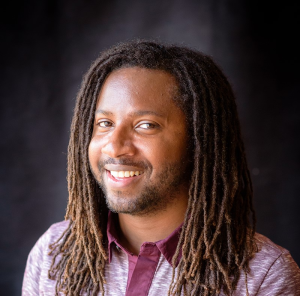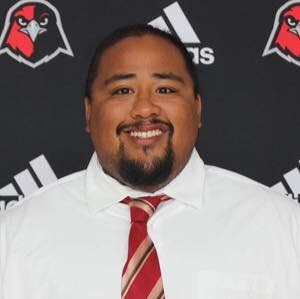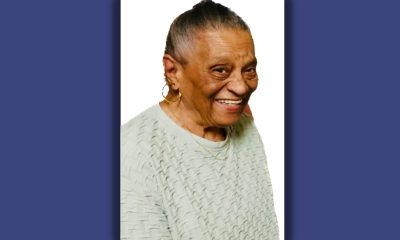Black Voice News
Engaged and Prepared to Fight for a Fair Share of Block Grant Funding
BLACK VOICE NEWS — There is little question about the importance of closing the African American student achievement gap.
S.E. Williams
There is little question about the importance of closing the African American student achievement gap. It is more urgent today than ever before, yet for Black students in California, just as it is nationwide, although the goal of closing the gap is clearly attainable—it remains elusive.
In June 2018 former Governor Jerry Brown signed AB1808 authorizing the allocation of a $300 million block grant targeting low-performing students in the 2018-19 fiscal year. The money is intended to provide these students with additional support to increase their academic achievement.
The block grant legislation was sponsored by the California Charter School Association (CCSA) and authored by Assemblymember Shirley Weber (D-San Diego). The one-time funding is intended to help close the student achievement gap by increasing per pupil funding for over 150,000 of the state’s lowest-performing students. It will also drive additional resources to school districts, county offices of education, and charter public schools.
During negotiations for the 2018 Budget Act, Weber secured the CCSA sponsored funding request on behalf of the California Legislative Black Caucus (CLBC). When the budget was finalized and the grant funding secured, Margaret Fortune, Board Chair, CCSA and CEO, Fortune School of Education, who led the CCSA push for this funding stated, “CCSA is proud to have helped launch a public debate about educational equity and the steps that must be taken to improve educational outcomes for California’s lowest-performing students. With Dr. Weber’s leadership, alongside a diverse coalition of community stakeholders, we’ve taken significant steps to level the playing field for all students and look forward to continuing this fight.”
The bill as authored, however would have added Black students to the school funding formula because they are the lowest performing subgroup not already receiving additional state support. Fortune recently noted again, that this one-time block grant was indeed a compromise.
CCSA, Weber and the CLBC had sought to create an ongoing new grant under the Local Control Funding Formula to assure additional funding for the state’s lowest performing students who are African American as objectively assessed by test scores. Brown, however, would only agree to $300 million in one-time funding for this purpose.
Although the negotiated compromise fell short of the bill’s funding intent it was still viewed by Weber and others as a huge step forward for thousands of students who are left behind academically year after year. She stated, “This funding will have strings attached, including accountability and transparency mechanisms, to ensure that the money gets to the students who need it.
The window is now open for schools to apply for the one-time additional $2,000 per pupil educational funding available through the Low Performing Students Block Grant.
As schools prepare applications for a share of the grant dollars, some African American student advocates in San Bernardino County have expressed concern that the district may not spend the money on Black students who are in the lowest performing subgroup. They are calling for public accountability and transparency as well as parent involvement in holding local education officials accountable.
Life-long San Bernardino resident and long-time student advocate Linda Hart, whose children attended school in San Bernardino, whose granddaughter is currently attending school in the county and who, herself attended school in San Bernardino, knows all too well the African American struggle for education parity and opportunity.
She was one of the first Black students to integrate San Gorgonio High School in San Bernardino during the 1972-73 school year. The experience left her with searing memories of what it was like to be constantly at an impasse with the White students there; to be taunted by hundreds of angry White parents as they stood outside campus hurling epitaphs and insults with rocks and stones in hand.
“Coming from an all-Black school and going to an integrated school was quite traumatic,” she recalled during an exclusive interview with the IE Voice/Black Voice News. “I didn’t learn anything the whole year because of everything going on around me.”
Hart said she knew from her family, especially her mother, “We were opening the doors for other students to follow behind us. It built my character. It made me stronger, more independent and out spoken.”

[/media-credit] Margaret Fortune and Linda Hart
Reflecting, she recounted how she did not mind what she was asked to do, but it was an emotional experience for a young teen. “The part that hurt the most was the of the National Guard who were supposed to be protecting us. they were giving us the middle finger the whole time.”
“That really threw me for a loop,” she continued. “I was like you guys are supposed to be here protecting us, but you’re also out to harm us.” She confessed this made her angrier and more militant.
It was as much this experience as any other, that planted the seed of Hart’s student advocacy. Although her children are now grown, Hart has a granddaughter, Kamaya, who attends school in San Bernardino County. “She attended Hardy Brown College Prep from Kindergarten through eighth grade,” she shared.
Hart described her granddaughter’s experiences at Hardy Brown College Prep as tremendously helpful when she made her transition to traditional public school in the ninth grade. “Kamaya has sustained all the core fundamentals of academia she learned there, and she has maintained high achievement marks in school.”
Kamaya currently attends Cajon High School where she is a stand-out basketball player who was highly sought by coaches across the county, Hart stressed her personal belief in the importance of having schools compete for you academically. “Sports come and go, she declared, yet proudly admitted Kamaya is doing a great job of balancing her sports with academics, “She is doing well.”
As a student advocate Hart has strong opinions about the block grant for low performing students and expressed concern that the money may be allocated in ways that limits the amount that will eventually make its way to the African American student population in San Bernardino County.
Hart began by highlighting how the first LEA (Local Education Agency) apportionment released in fall 2018 had little impact on closing the achievement gap.
“When you take a look at the percentages relating to where the performance level of African American students has been historically and where we are now, it shows we still have a long way to go,” she asserted.
“We just want to make sure that under the new criteria—focused on the lowest performing students—continues. That we don’t lose the focus of what that money is intended to do—to target the lowest performing groups. And, when you look at it statistically, that definitely includes African American students. You can’t get around it,” she adamantly proclaimed.
Hart believes one of the ways to assure this happens is through parent engagement at both traditional and charter public schools. “That includes organizations that do outreach to African American parents to get them involved in their school site council and that includes AAPAC .
She suggested if there is not one at your child’s school, develop one. “ an African American parent support group. You can name it , as long as you are convening Black parents together to work on an agenda to specifically ensure the block grant funding is targeted to African American students.”
Hart believes the only way parents can guarantee the funding is directed as intended is through parent engagement. “It is parent engagement on school campuses that will make the difference,” she explained. “Other than that, it is not going to work.”
“We cannot depend on other people to do that for us. You don’t have the Asians looking to the Blacks for solutions . “They are not putting their kids’ destinies in our hands,” she stressed as an example. “When you think about it. Who really does that? Nobody. Nobody but us.”
“When you know better,” she continued, “you do better, that’s my motto for 2019.” Hart said when it comes to the education of one’s children—the parents are making choices. “You don’t have a choice when you don’t know, but when you do know, you have choices.”
Parent engagement is common sense according to Hart. “We all know students are more successful when parents are engaged in activities, but we’ve seen them focus heavy on the sports side but on the academic side, we are not there. We are at the basketball games when what we need is for parents to be sitting in those school board meetings. When it comes to discussing strategies for closing the African American achievement gap, we are not there. So, when someone else is there and their voices are louder—the money is directed toward them that’s it,” she concluded.
Hart also noted the importance of parents investing time with their child when it comes to their education. “There are some parents who can invest financially for their child and then there are some parents who can’t. I would tell both parents the one thing everyone has equally is yourself.” She suggested parents should invest time in working toward their child’s educational success. “There is no dollar amount on that, it is just time.
Parents can be very impactful in their children’s lives by spending time on a week day asking how their child is doing in class? Discovering how things are going. They may discover small things that can help their child emotionally,” she expounded, harkening back to her days of integration at San Gorgonio. “A child needs to be emotionally secure, a parent needs to be there for his/her child.”
Hart also shared her thoughts on absenteeism as it relates to the block grant and in general. “We may secure all the money in the world and have the best programs at the school but if our kids aren’t in school because of chronic absenteeism, it is a big issue. If they’re not in school, it doesn’t matter what is in the school .”
Parent engagement, assuring students feel emotionally secure and making sure students attend school are three areas of focus where Hart believes African American parents can have a significant impact. “We can’t just say, ‘O.K., we want the money.’ We have to make sure there is a heathy foundation to pull it all together.”
In conclusion she stressed, “There are many more things that can be done, but these are the ones I feel are critically important.”
This article originally appeared in Black Voice News.
African American News & Issues
Geoffrey’s Inner Circle Not included in Funding Support
We will ultimately be successful in our efforts to reach the goal of our fundraising campaign but will also ensure that the native Oakland community of African Americans will receive equal assistance and opportunity in this city.

Publisher’s note by Paul Cobb: Several years ago when writer MarvinX Jackmon and I asked Mayor Libby Schaaf and Councilmember Lynette Gibson McElhaney to name the downtown business district in honor of the historic Black achievements, Black Newspaper, Black Businesses, Art Galleries, Black Museum, Government Buildings, Arts and Entertainment venues, I asked the Mayor to make sure that Geoffrey’s Inner Circle would receive the same financial support and grants that the Fox Theatre and the Oakland Auditorium were receiving. I reminded her how I as the former director of OCCUR, had led a group of historical preservationists to save the Fox from a demolition wrecking ball, she said she liked the Malonga Arts Complex instead. We at the Oakland Post support Geoffrey’s Go Fund Me appeal https://gofund.me/b2541419 with a $1,000.00 donation and my wife Gay Plair Cobb and I urge others to join us either in-kind or with at least the donation of a “Tubman” ($20.00 bill). Geoffrey’s ironically was the original home of Oakland’s white power structure. (We have published a photo below of how those White wealthy leaders often met and entertained themselves by adorning themselves in Black Face at the former Athenian Nile Club ( now Geoffrey’s). And now that the same establishment is represented by the face of a Black man, his establishment is being whitewashed with neglect.
The Post has asked Mr. Pete to give his own opinion below.
Paul Mooney appeared at Geoffrey’s Inner Circle some 30 or more times over the years. His platform and message were always used to shed a light on the grave racial disparity and economic injustice that has, whether acknowledged or not, plagued this country since its inception. This racially aggressive ideology has also had its tangles in our dear city of Oakland. A disparity study illustrated by Dr. Eleanor Ramsey highlighted the glaring absence of African Americans in the city’s landscape of budgeted allotments for professional services, labor construction and city development.

Former entertainer Paul Mooney often performed at Geoffrey’s urging America to face-up to White racism
While I applaud Yoshi’s Oakland for reaching their goal in their most recent Go Fund Me efforts, it should be noted that Yoshi’s also received $5 million dollars in assistance from both the City and Port of Oakland to open a jazz entertainment venue at Jack London Square. Geoffrey’s Inner Circle, a live entertainment venue that began at Jack London Square, has been operating for 30 years. This offer was not extended to expand GIC or renovate, nor was it offered to any other Black Owned Business in the entertainment genre in Oakland.
The Fox Oakland was $50 million dollars over budget for its renovation project and most recently left the City of Oakland with a $78 million cost overrun.
When an African American Development Firm entered a bid on the Oakland Auditorium/ Kaiser Center, the city gave a white developer the contract and $12 million dollars in naming rights. This deal in its origin should not have had any monetary exchange whatsoever, naming rights included. The aforementioned developer has additionally secured a 99-year lease that will cost him a hefty $1 dollar. He will also receive tax credits to the tune of a $20-$40-million-dollars in subsidies. Go fund me has a different ring to it if you are non-black and vending with the City of Oakland it seems.
We will ultimately be successful in our efforts to reach the goal of our fundraising campaign but will also ensure that the native Oakland community of African Americans will receive equal assistance and opportunity in this city.
Thank you in advance for your support!
Geoffrey Pete
GoFundMe
Bay Area
Holy Names University Celebrates New Teachers Completing Credentials
“I know very deeply what it means to be a teacher at any time but especially this past year. We wanted to do something special, and maybe this is starting a trend, to acknowledge all of our credential program completers.”

Holy Names University’s School of Education held a Zoom celebration at the end of the school year on May 28 to recognize eight new teachers who completed their teaching credentials, successfully finishing their rigorous training in the midst of an extremely challenging pandemic year.
The credential completers were honored by Dr. Kimberly Mayfield, dean of the School of Education, who emphasized the humanistic and nurturing approach to teaching that is the hallmark of Holy Names.
Reflecting on the principles that motivate the HNU staff, she said, “We train our candidates to be effective no matter what the setting is. Although this (year’s conditions) were unique, our candidates were expertly prepared for it.”
“I know very deeply what it means to be a teacher at any time but especially this past year. We wanted to do something special, and maybe this is starting a trend, to acknowledge all of our credential program completers.”
Mayfield explained that education and Oakland schools are a profound part of who she is. She is herself a former Oakland teacher; her mother was an Oakland teacher for many years; and her husband is currently an Oakland teacher.
“My hope and my charge for our candidates is not only to deliver the kind of education you’ve been trained to do but to really be sure that your classrooms are safe places for all students at your school,” Mayfield continued.
“When there are students who seem to be outliers and maybe don’t fit the picture of the school at large, that student fits the picture of success for you as a HNU graduate. Your classrooms become the safe places for all students, not just the students that are in your class or on your (rolls). That is the ethic of care that we’ve imparted.
“We are coming together in love and we want to recognize the good work that our HNU candidates have done.
She said that the Holy Names teachers are exceptional people. “When we do recruitment events, we always say we aren’t just training teachers to be teachers, we’re training teachers to be effective with our own children. When we look at who we want in the program, we are looking for candidates through those eyes. It’s a higher standard. Our relationship with you is forever.”
The eight Holy Names credential completers are:
- Todd Brewer, who is completing a special education credential. He teaches 8th grade at Impact Academy;

Todd Brewer
- Mason Brown, who is completing his single subject in science. He teaches physics for 10th, 11th and 12th graders at East Bay Innovation Academy;

Mason Brown
- Angela Calderon, who is completing her special education credential. She has been teaching special education at Richmond High School;

Angela Calderon
- Jaron Epstein, who is completing a special education credential. He has been teaching 6th-8th grade in a special day class at West Oakland Middle School;

Jaron Epstein
- Alexander Niuatoa, who is earning a single subject physical education credential. He teaches 7th and 8th graders at Winton Middle School and 10th grade at Hayward High School.

Alexander Niuatoa
- Erica Nurse, who is receiving her multiple subjects credential. She has been teaching second grade at Tolenas Elementary School in Fairfield and gives private music instruction in Vallejo.

Erica Nurse
- Shazmine Randle, who is earning a special education credential. She teaches 6th through 8th graders at Creekside Middle School.

Shazmine Randle
- Mariya Snazina is earning a world languages credential. She teaches French at Castro Valley High School.

Mariya Snazina
Each of the credential completers who attended the celebration will receive a $200 gift card, courtesy of a donation by the Teel Family Foundation, to help them buy supplies for their classrooms for the new school year.
Mayfield ended the ceremony by remembering the legacy of “really great educators who have gone before you: Dr. Fred Ellis, Margie Mayfield and Sylvester Hodges.”
“I want you to know that their energy is with you and supporting you as you go out and do really great work,” she said.
Black Voice News
BOE Member Malia Cohen Raises Red Flag on Bank-Breaking Prop 19 Tax Costs
“The challenge is that it was voted upon and the election has been certified. So, it’s the law,” Cohen said during a virtual media news briefing with reporters from across the state on January 29 organized by California Black Media.

Malia M. Cohen, the only African American member of the California Board of Equalization (BOE), has some critical concerns about the cost homeowners will have to bear because of Proposition 19, a constitutional amendment that took effect on Dec. 16, 2020.
Cohen, who represents 10 million Californians in 23 counties on the board, is concerned with how Prop. 19 will affect Black and other minority homeowners across California. The BOE is the commission responsible for implementing the law.
“The challenge is that it was voted upon and the election has been certified. So, it’s the law,” Cohen said during a virtual media news briefing with reporters from across the state on January 29 organized by California Black Media.
In her commentary, Cohen discussed the ways the law will impact all property owners.
“It not only affects our respective Black communities,” she told the reporters. “It affects all homeowners and property owners in the state of California. When people wake up there is going to be a massive coalition (to fight it) — possibly an uprising. People need to know what the real deal is.”
Cohen said she is planning other events similar to the news briefing she had with CBM. There, residents of California will begin to hear about “the first steps” they can take to become educated about how Prop.19 will hit their bottom lines. This is something she feels was not adequately explained to voters when the referendum was placed on the ballot last November.
On Nov. 3, 2020, California voters approved Prop. 19, the “Home Protection for Seniors, Severely Disabled, Families, and Victims of Wildfire or Natural Disasters Act.”
Although Prop. 19 was enacted in December, Cohen warns that a critical part of the legislation will take effect on February 16. Until that date, the state currently allows tax breaks for parent-child transfers. When parents give or sell real property to their children (or perhaps, grandchildren), that heir continues to pay property taxes at the same rate assessed on the home value as the parent.
After February 16, Prop. 19 will eradicate the parent-child exclusion. Then, parents would still be able to transfer their house to a child, and the child may keep the parent’s assessed value. But the Prop. 19 law has added one critical condition: the child must move into the residence and make the property his or her own primary residence. If not, the property will be reassessed at what the current tax cost is for the home at that time.
Cohen discussed the immediate property tax implications and how it might impede property owners’ intentions to create generational wealth by transferring their personal residence and other property they own to their children as part of their estate planning.
BOE Tax Counsel Richard Moon also participated in the briefing.
“What is required is that a child moving into the home must file a homeowner exemption and that needs to be done within a year of the transfer date,” Moon said. “The child has one year to move into the family home and maintain that family home in order to keep the exclusion. But if they move out after three years, the property would be assessed at that point.”
Rates of Black homeownership in California and across the country are still far below that of Whites and other minorities. Critics of the law say the fact that Prop. 19 could set up even more barriers to African Americans owning homes – and straddle struggling families with additional financial burdens – is problematic. About 2.2 million Black people reside in California, around 5.5% of the state’s population. According to the U.S. Census Bureau, the rate of white American homeownership is over 73%, while that of African Americans stands at 41%, Black Enterprise magazine reported in 2019.
According to data compiled by Lending Tree, the country’s leading online home loan marketplace, Los Angeles is one of the cities with the highest percentage of Black homeowners. Utah’s Salt Lake City, Texas’ San Antonio, Oregon’s Portland, and Northern California’s San Jose are also included on that list.
African Americans primarily generate wealth through homeownership and home inheritances, according to data included in the Urban Institute’s “2019 Black Homeownership Gap: Research Trends and Why Growing Gap Matters” report.
“Homeownership is currently the largest single source of wealth-building” among the Black population, the study stated. Between 2005 and 2008, over 240,000 African Americans lost their homes to foreclosure according to the Center for Responsible Lending.
“The financial crisis triggered a massive destruction of wealth for African Americans,” Alanna McCargo, co-director of the Urban Institute’s Housing Finance Policy Center told the Washington Post in 2019. “Wealth is inextricably linked to housing, and that wealth gap is evident in figures for Black-owned property in this country.”
The law, as it is written, would exclude from the term “purchase” and the phrase “change in ownership” for purposes of determining the “full cash value” of property in the purchase or transfer of a family home or family farm, for example.
Hardy Brown, Publisher Emeritus of the Black Voice News in Riverside says some of the spirit of Prop. 19 may have been positive. The state intended to provide financial cover for the mostly white Californians living in fire- and flood-prone parts of the state in the event disaster happens. But what it ends up doing, he argues, is decimate the wealth of Blacks and other minorities.
“It doesn’t help,” said Brown. “It might make a quick buck for campaign contributors or help the state to be a good neighbor to some people, but severely harms others in the process. What it really ends up doing is putting another law on the necks of Black people in the state of California. It will choke the breath right out of us.”
Under its constitutional mandate, the BOE oversees the assessment practices of the state’s 58 county assessors, who are charged with establishing values for approximately 13.6 million properties each year.
“We are not talking about $25 million palaces in Malibu. We are talking about humble homes. Middle-class homes,” Cohen said. “I live in the Bay View community (of San Francisco). We’re talking about Baldwin Hills of Los Angeles or Encanto in San Diego and other communities throughout California. Homes that were purchased for $100,000 decades ago that now have a market value of over $1 million. These homes were paid for through hard work and could be potentially lost.”
-

 Activism4 weeks ago
Activism4 weeks agoOakland Post: Week of March 20 – 26, 2024
-

 #NNPA BlackPress3 weeks ago
#NNPA BlackPress3 weeks agoCOMMENTARY: D.C. Crime Bill Fails to Address Root Causes of Violence and Incarceration
-

 #NNPA BlackPress3 weeks ago
#NNPA BlackPress3 weeks agoMayor, City Council President React to May 31 Closing of Birmingham-Southern College
-

 #NNPA BlackPress3 weeks ago
#NNPA BlackPress3 weeks agoCOMMENTARY: Lady Day and The Lights!
-

 #NNPA BlackPress3 weeks ago
#NNPA BlackPress3 weeks agoFrom Raids to Revelations: The Dark Turn in Sean ‘Diddy’ Combs’ Saga
-

 #NNPA BlackPress3 weeks ago
#NNPA BlackPress3 weeks agoBaltimore Key Bridge Catastrophe: A City’s Heartbreak and a Nation’s Alarm
-

 #NNPA BlackPress3 weeks ago
#NNPA BlackPress3 weeks agoBaltimore’s Key Bridge Struck by Ship, Collapses into Water
-

 Activism3 weeks ago
Activism3 weeks agoOakland Post: Week of March 27 – April 2, 2024














































